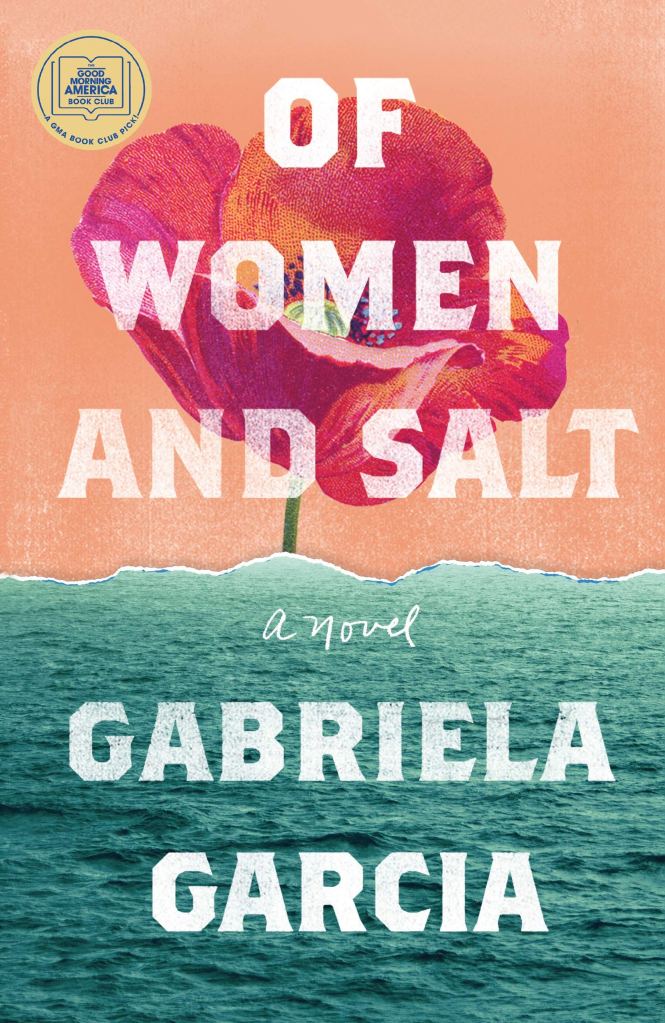
It has been a very long time since a book made me feel as anxious as this one did. Of Women and Salt never stops moving, and the amount of trauma and exhaustion that all the women in the story experience will make your head spin. Gabriela Garcia packs this small book so densely with multi-generational familial harm that I wasn’t even mad, I was impressed.
Most of the book focuses on a family line that reaches back into pre-Castro Cuba. We read about the great grandmother, then the grandmother, then the mother Carmen and her daughter Jeanette who both live in present day Miami. Jeanette is struggling with addiction and an abusive relationship and has seemed to have gained a handle on both through treatment and a separation and is even living in her own rental home. One day she witnesses her El Salvadorean neighbor get taken by ICE, and when her neighbor’s daughter Ana returns from school that evening to an empty house, Jeanette decides to take her in and keep her safe. Carmen finds out about this arrangement and tells Jeanette to call the cops, which she does, and Ana is taken away to get swept up in the absolute dumpster fire that is our immigration system at the Mexico border.
I love reading books like this. I learn so much about cultures and experiences that I have only really learned about in a shallow way. The difference between the Cuban immigration experience and the South/Central American immigration experience is an important one to understand, because even with the recent end to the “wet foot, dry foot” policy, Cubans are afforded a benefit of the doubt that others coming to this country for safety and a new start simply are not given.
I was also interested in the deep political divides that exist within the Cuban experience. At the surface it is the communist v. capitalist but more than that it is a sense of loyalty to family and country and what we owe to each other as we survive in the world. Carmen is completely estranged from her mother, and this probably just makes Jeanette want to visit Cuba more, to see her grandmother and talk to her for herself.
When she does eventually visit, something happens when they try to hitch a ride with a white (German) tourist. The tourist approaches his surroundings with suspicion, while everyone else knows everyone and is willing to help, and while even reading it I felt my danger alarms going off, Jeanette and her cousin are never in any real danger. That one scene stuck in my mind as a practical example of capitalist/individualist society and a communist/socialist one, but even then Garcia moves to show that there are pros and cons to each and that neither is a full solution to the problem of human cruelty and exclusion.
I cannot recommend this book highly enough. It was a thrilling story, it kept my interest all the way through, and I felt like I walked away from it with just a little more understanding and empathy. It also kept my angry fires burning for the injustices happening at our border, and only strengthened my resolve to stay informed and take action to help when I can.
You need to read this book. Go get it as soon as you can and take these journeys with these women. You will not be disappointed, maybe just left breathless when you finish the final page.
Enjoying the posts?
Follow me on Twitter or show Angry Angel Books some love with a donation or a book!



You must be logged in to post a comment.